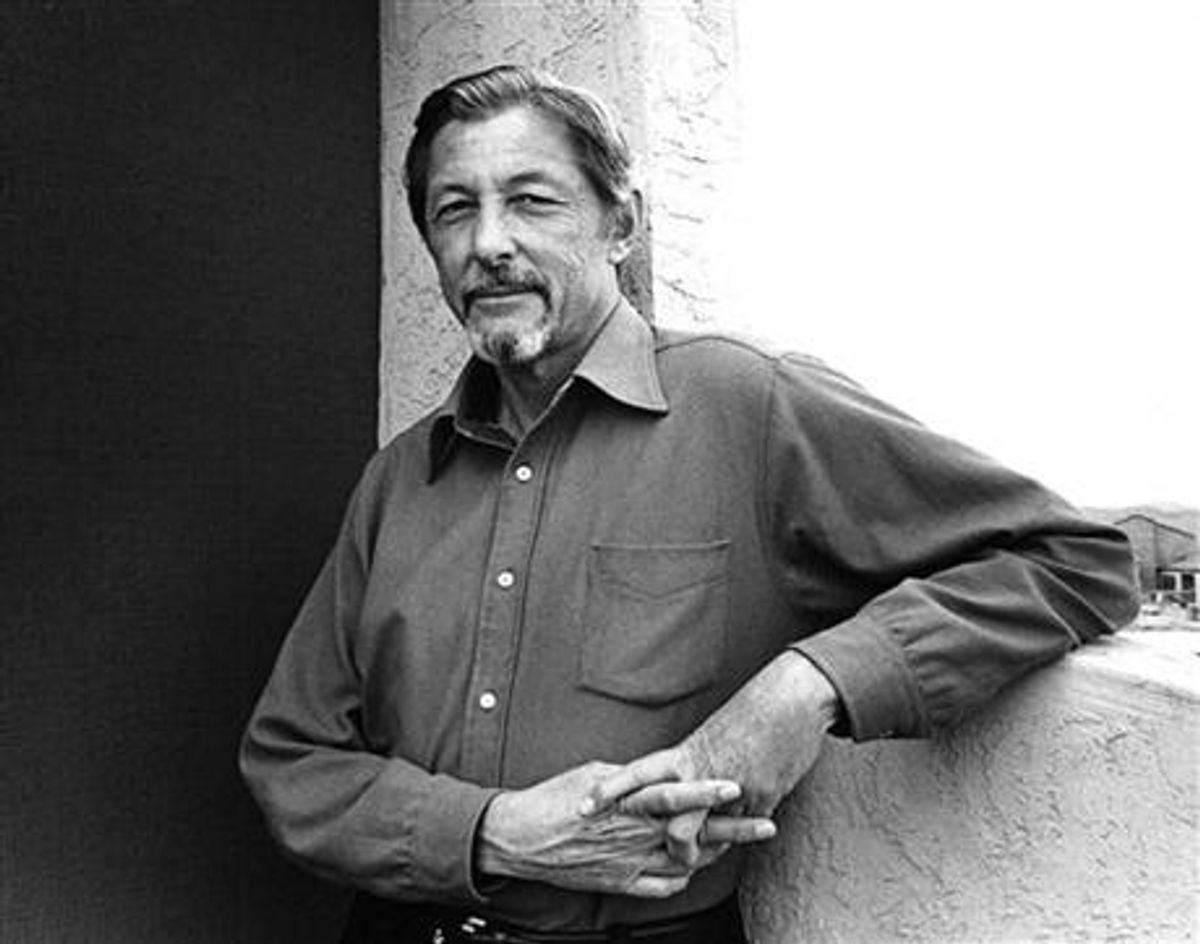SANTA FE, N.M. (AP) — Evan S. Connell gained some attention via his better known books, but the acclaimed author was well-known and regarded fondly by students of literature, critics, and others as an adventurous writer whose body of work reflected a diversity of interests.
Connell's Depression-era Kansas City in the twin novels "Mrs. Bridge" and "Mr. Bridge" was even made into a movie starring husband and wife movie actors, Paul Newman and Joanne Woodward.
On Thursday, the author of "Son of the Morning Star: Custer and the Little Bighorn" — a book about Custer's last stand — was found dead in his apartment in Santa Fe, where he had lived in recent years. He was 88, his niece said.
Connell likely died of old age, said Donna Waller of Hilton Head Island, S.C. His request to family: no funeral.
Connell was a National Book award finalist, a member of the American Academy of Arts and Letters and a finalist in 2009 for the International Man Booker Award for lifetime achievement.
Connell was the author of 19 books, including two book-length poems, a biography of Spanish painter Francisco Goya and a historically detailed novel about the Crusades, "Deus Lo Volt!"
He wrote often of seekers and doubters, world travelers through the ages, and conventional folks who secretly yearned to break out.
The author himself was blessed with a curious and unpredictable mind, his subjects including alchemy, Antarctica, Nordic tales, Marco Polo, Mayan sculpture and the quest for gold in the New World.
His best-known books included his first novel, "Mrs. Bridge," published in 1959 and nominated for a National Book Award. His historical account of Lt. Col. George Armstrong Custer came out in 1984 and was a finalist for the National Book Critics Circle prize. It also was a best-seller and adapted for a network television miniseries.
Newman and Woodward appeared in the 1990 film, "Mr. & Mrs. Bridge," which was based on Connell's twin novels. Each of the novels was written from the perspective of the title character.
Connell once said that the books, published a decade apart, were "semi" autobiographical. They drew on his childhood experiences growing up in an upper-class family in the Midwest before World War II.
Connell was born in Kansas City, Mo., on Aug. 17, 1924, the son and grandson of physicians. His mother was the daughter of a judge.
Connell embarked on a literary career despite the wishes of his father, who wanted him to inherit the family medical practice.
"He was concerned that I would never be able to make a living at this kind of thing — it was a justifiable concern, I think," Connell told The Associated Press in 2000. "I grew up in a home where there was no music, no interest in any of the arts."
In "Mrs. Bridge" and "Mr. Bridge," Connell's narrative was a series of vignettes — some just a few paragraphs — that offer a portrait of the pre-war lives of Walter Bridge, a workaholic lawyer, and his wife, India, who reside in the fashionable country club district of Kansas City.
While the Bridges each are respected members of their class — and respectability is the dearest of goals — Connell also writes of their inner doubts about their marriage, their religious faith and the meaning of their lives.
As much as any work by a writer of Connell's generation, these two novels are likely to live on as classics in our literature, wrote Gerald Shapiro in a 1987 edition of the literary journal, Ploughshares.
Connell "was a trailblazer, a troubadour, one of the first to put the literary scalpel to the suburban skin," Greg Bottoms wrote in Salon.com in 2000 in describing the Bridge novels.
His most recent book was a collection of short stories published in 2008, "Lost in Uttar Pradesh."
He began writing while attending Dartmouth College. But he left in 1943 to enlist in the Navy, becoming a pilot and flight instructor. After the war, he returned to college and graduated from the University of Kansas in 1947 with a degree in English literature.
He studied creative writing at Stanford and Columbia universities, but unlike many authors he never taught, saying that campus life was too comfortable.
He traveled to Europe, and lived briefly in Paris before returning to the United States in the mid-1950s. At times, he took odd-jobs to support his literary pursuits. He once worked as an interviewer in an unemployment office in the San Francisco area, where he lived for more than three decades before moving to New Mexico in 1989. He never married.
The Santa Fe-based Lannan Foundation awarded Connell its $100,000 Literary Award for Lifetime Achievement in 2000.
"We believe he's one of the most important postwar (WWII) American writers," Patrick Lannan said at the time. "To be that good in fiction, nonfiction and poetry is really, really remarkable."
Waller said no funeral services were planned.
Donna Waller's husband, Mike, said the family planned to hold a private memorial service in Santa Fe in spring but no date has been set. He said the family is asking that in lieu of flowers that donations be sent to Bread of the World organization in Connell's name.



Shares